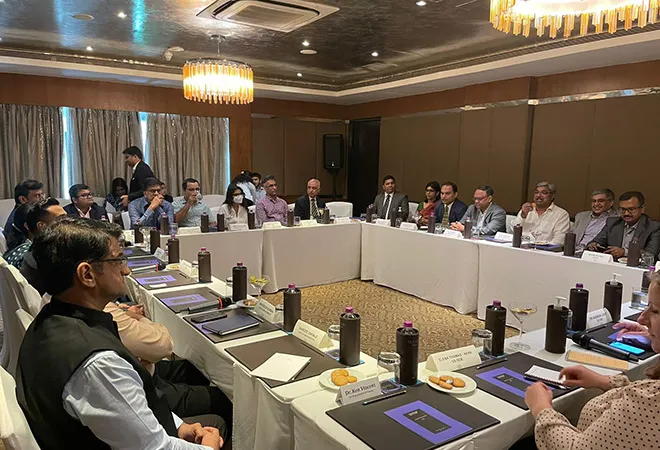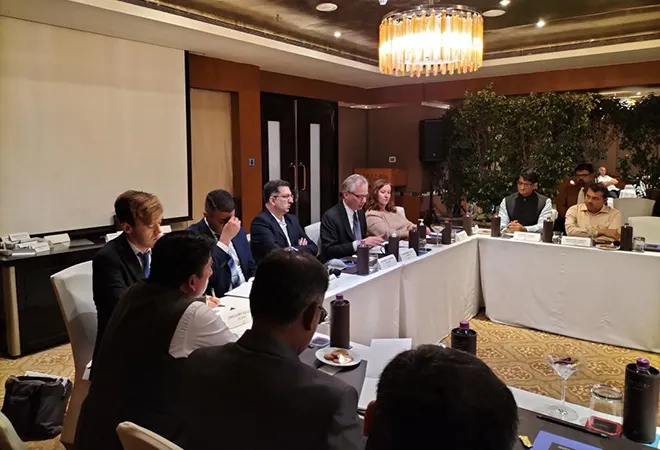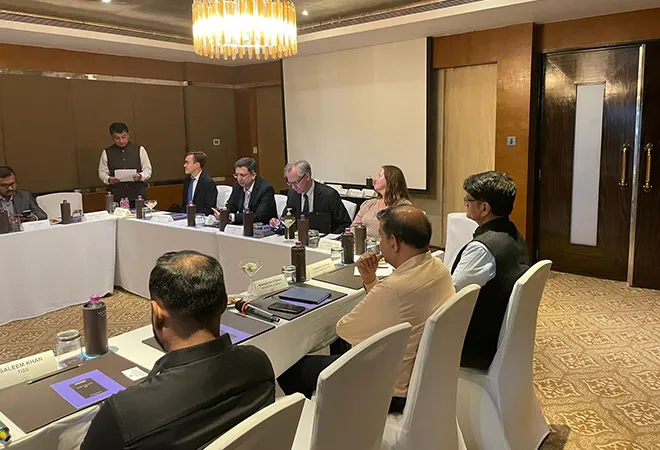-
CENTRES
Progammes & Centres
Location

The global future of energy will be decided by India which is central to any global climate response and transition to green and clean energy, said Dr Andrew Light, Assistant Secretary for International Affairs, Department of Energy (DOE), United States (US). He was speaking at a multistakeholder roundtable organised jointly by the Observer Research Foundation (ORF) and the DOE in Mumbai on Thursday. He also said that the Clean Energy Ministerial to be hosted by India in 2023 could establish India’s pivotal position in shaping global green transitions.
The roundtable aimed to bring forth ideas for strengthening the India–US Agenda 2030 Partnership through policy interventions, government and private-sector leadership, and civil society participation.
The India–US relationship is underpinned by their shared democratic values, common interests, and strong bilateral relations. The countries also have an active and ongoing strategic partnership in the energy sector. During the April 2021 Leaders’ Summit on Climate, President Biden and Prime Minister Modi announced a high-level US–India Climate and Clean Energy Agenda 2030 Partnership to accelerate progress toward shared climate and clean energy goals and mobilise finance for climate action. The partnership aims to ensure responsible oil and gas consumption, improve energy efficiency, increase the deployment of renewable energy and support sustainable economic growth agenda by enhancing long-term energy development plans in India.

The participants, comprising representatives from industry, academia, and civil society, emphasised the need for reform in the power sector through new business models and increased private sector participation along with strengthening of institutions. An important element brought out during the discussion was the pressing need to improve the investment climate towards medium and smaller enterprises in securing green finance to propel their transition to cleaner energy. The participants noted that it is imperative for India and the US to work together to promote industrial decarbonisation in the hard to abate, fossil fuel-dependent sectors such as steel and cement through energy efficiency and emerging technologies. The participants also focused on the implementation of smart grids, grid integration of renewables, energy storage, and distribution to improve India’s energy security.
Dr Light highlighted India’s pivotal role in the global quest for the green transition. He particularly noted the huge potential employment opportunity in India’s efforts towards cleaner technology options and green transitions. He also emphasised the importance of energy independence in offsetting geopolitical volatility.

The participants highlighted the importance of commercial angles, harmonious ESG regulations, and priority sector lending to channelise higher investments from the private sector. A congruent aspect brought out at the discussion was to increase collaborative research output in smaller innovations towards modest targets rather than look at long-term ambitious targets that are decades away. Furthermore, the participants underlined the importance of global as well as inter-state and inter-city collaboration leading to higher community engagement to enable a shift in community mindsets towards choosing greener options.
The session concluded that US–India cooperation will enhance the transition towards clean energy with increased collaboration with stakeholders, including Indian central and state governments, research institutions, and the private sector. Collaboration and cooperation between the two countries will also support the development of new frameworks, which will enable the adoption of low-carbon and decarbonisation technologies.
This event report is written by Apoorva Lalwani and Souradeep Bag.
The views expressed above belong to the author(s). ORF research and analyses now available on Telegram! Click here to access our curated content — blogs, longforms and interviews.